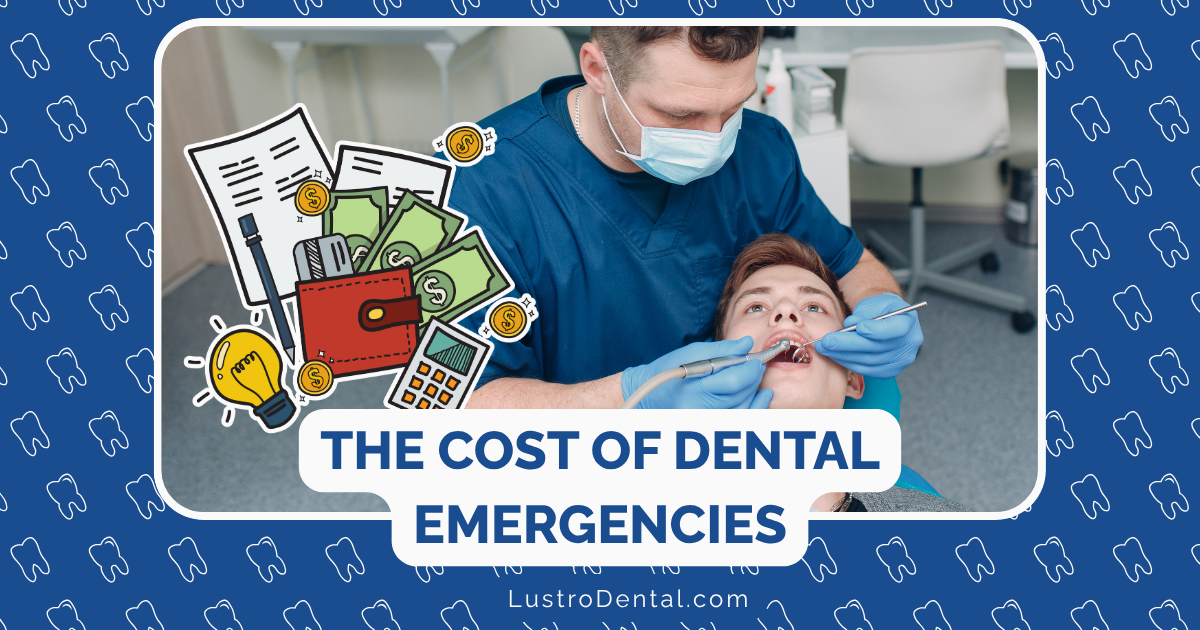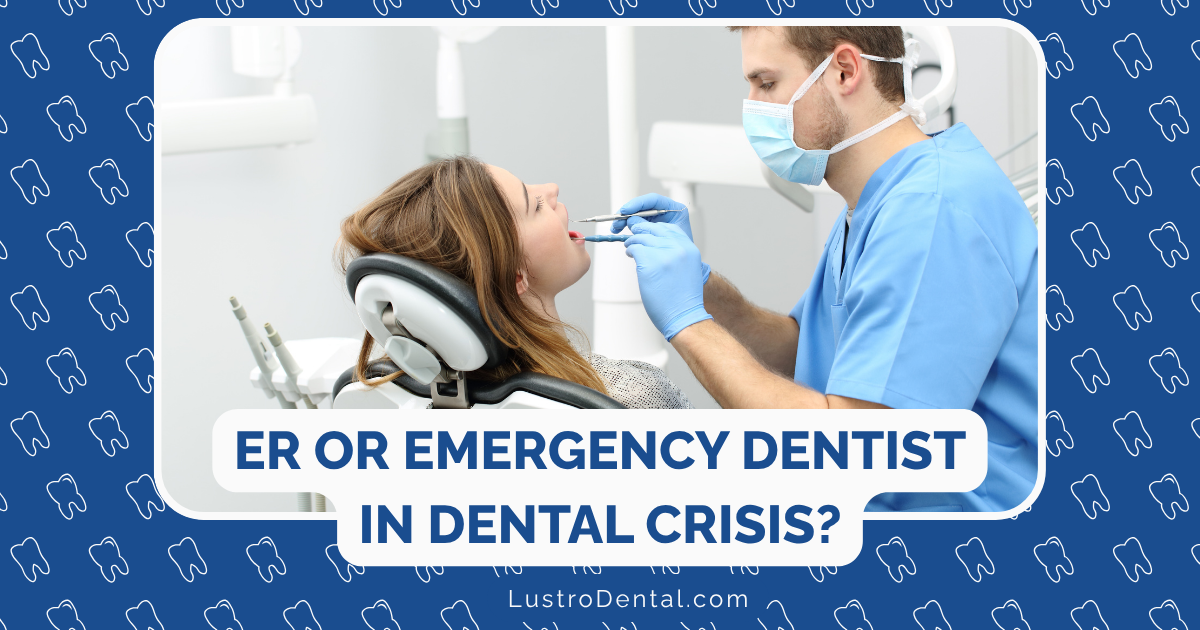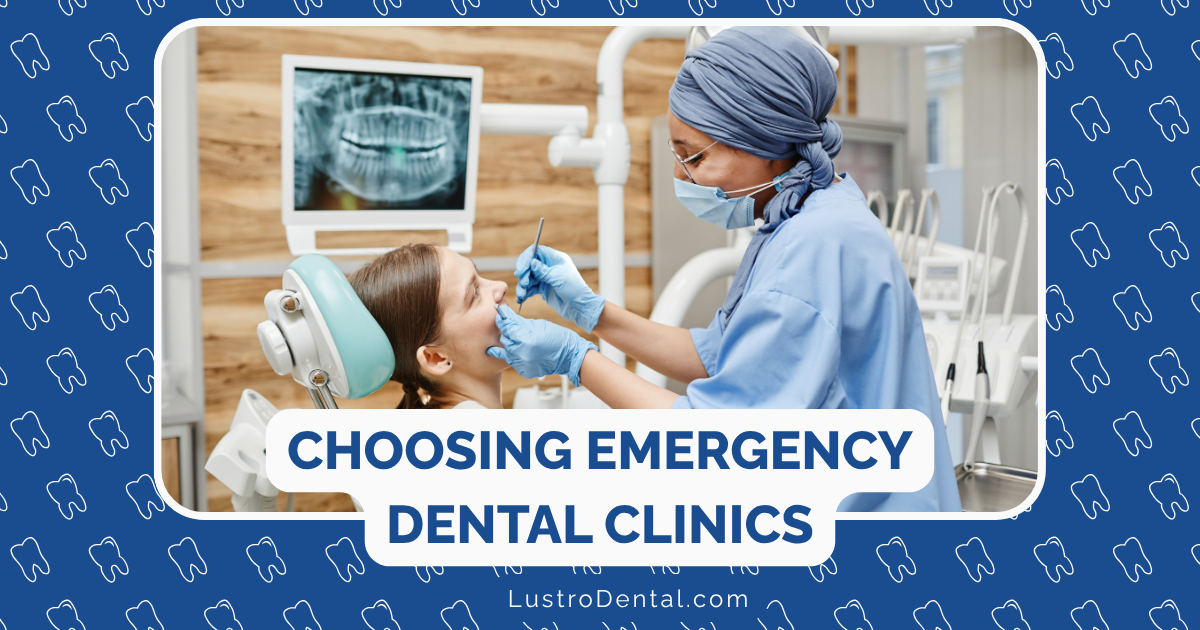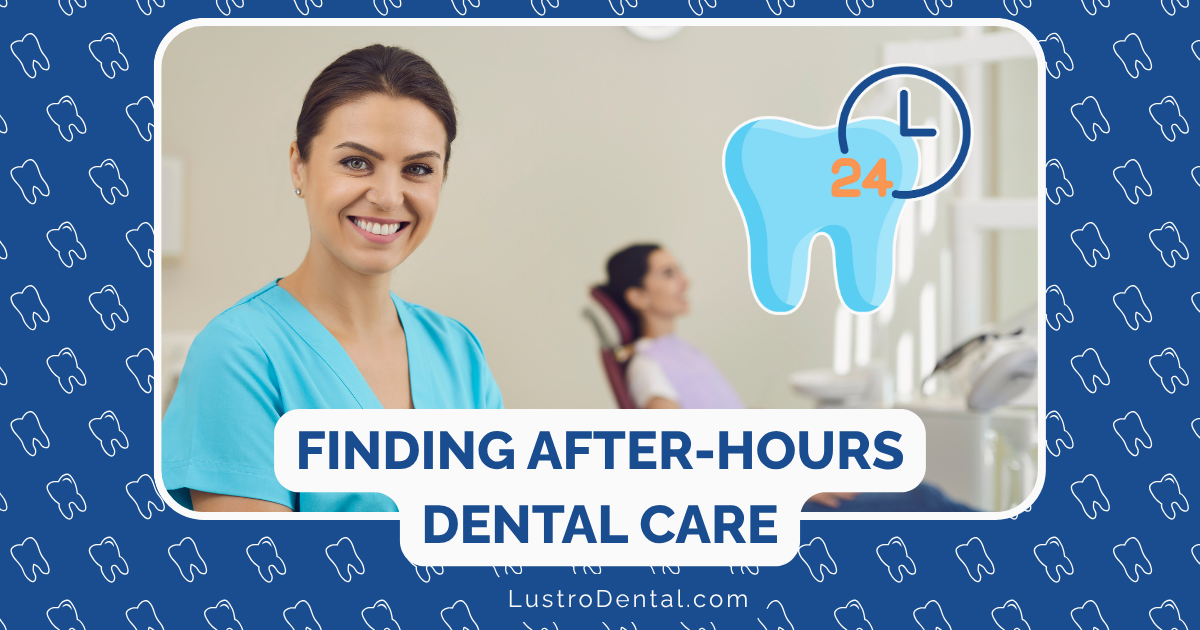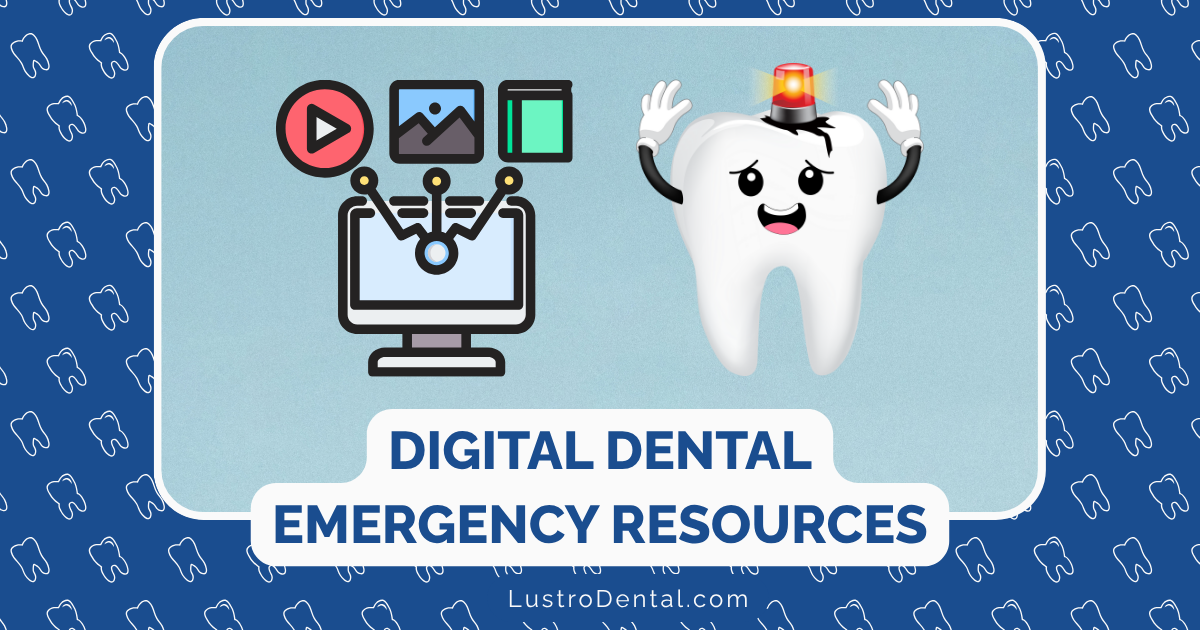Decoding Dental Pain: What Different Types of Toothaches Mean
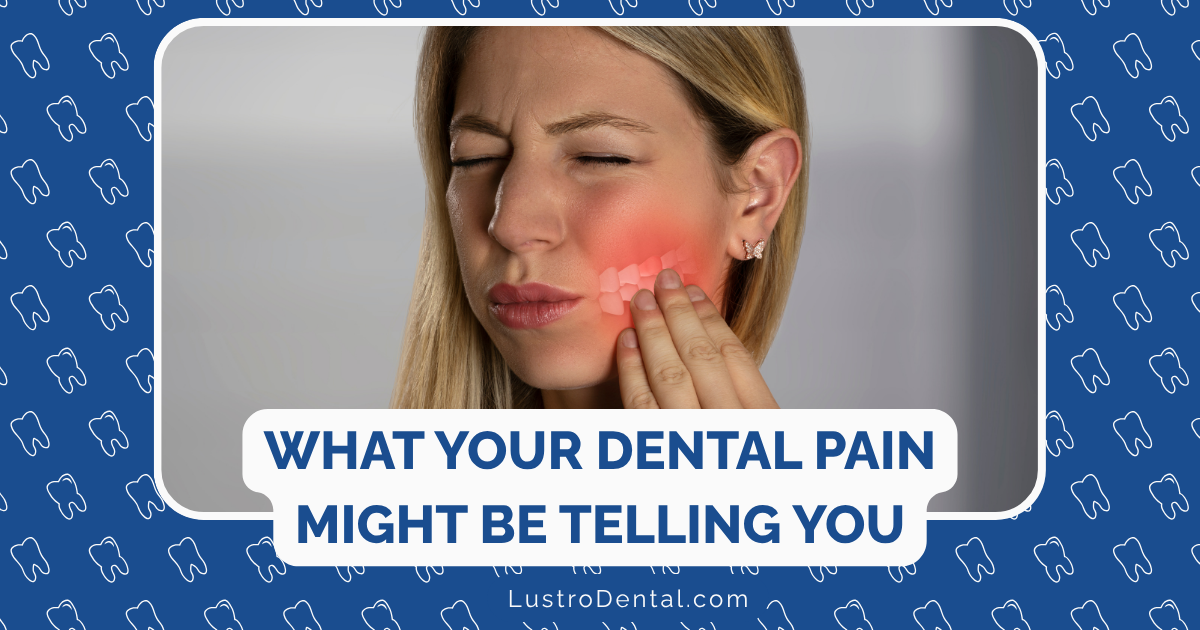
When Sarah woke up with a sharp pain in her upper molar that intensified with hot coffee, she wasn’t sure what it meant or how urgent it was. “Is this something I need to address immediately, or can it wait until my regular checkup next month?” she wondered. Like Sarah, many people experience dental pain but struggle to interpret what their specific symptoms indicate.
Dental pain is rarely one-size-fits-all. Different types of toothaches can signal various underlying conditions, from minor issues that can wait to serious problems requiring immediate attention. Understanding what your pain is telling you can help you make informed decisions about when and how to seek care.
In this comprehensive guide, we’ll decode the different types of dental pain and what they typically mean, helping you better understand your symptoms and appropriate next steps.
Sharp, Shooting Pain
What it feels like: A sudden, intense pain that comes in quick bursts or “zaps,” often triggered by specific activities like biting down, exposure to hot or cold, or sweet foods.
What it might mean:
- Cracked tooth or filling When a tooth or filling develops a crack, it can expose the sensitive inner layers of the tooth. When pressure is applied (like during chewing) or when temperature changes occur, the crack can shift slightly, irritating the nerve and causing that characteristic sharp, shooting pain.
- Exposed dentin due to enamel erosion Enamel is the protective outer layer of your teeth. When it wears down, the underlying dentin becomes exposed. Dentin contains tiny fluid-filled tubules that connect to the nerve, which is why temperature changes or sweet foods can trigger sudden pain.
- Dental abscess beginning to form In some cases, sharp pain can indicate the early stages of an abscess—an infection at the root of a tooth or between the tooth and gum. As pressure builds from the infection, it can cause sharp, shooting sensations.
When to seek care:
- If sharp pain persists for more than a day or two, or if it’s severe enough to disrupt your daily activities, you should schedule a dental appointment within the next few days.
- If the pain is accompanied by swelling, fever, or a foul taste, seek care more urgently as these may indicate infection.
Dr. Sarah Chen of the American Dental Association advises: “Sharp dental pain is your body’s way of alerting you to a problem that needs attention. While it’s not always an emergency, it’s generally not something that will resolve on its own.”
Dull, Persistent Ache
What it feels like: A continuous, throbbing discomfort that may be mild to moderate in intensity and tends to linger for hours or days.
What it might mean:
- Tooth decay (cavity) When decay progresses through the enamel and reaches the more sensitive dentin layer, it often causes a persistent ache. This pain tends to worsen over time as the decay gets closer to the nerve.
- Gum disease Inflammation of the gums (gingivitis) or the deeper supporting structures (periodontitis) can cause a dull ache around affected teeth. This pain may be accompanied by red, swollen, or bleeding gums.
- Teeth grinding (bruxism) The constant pressure from grinding or clenching your teeth—often during sleep—can lead to muscle fatigue in your jaw and a persistent ache around your teeth. This pain is typically worst in the morning.
- Sinus pressure Interestingly, sinus inflammation can cause pain in the upper teeth, particularly the molars, as the sinus floor sits right above these tooth roots. This pain often changes with position and is accompanied by other sinus symptoms.
When to seek care: For mild, dull aches, you can often wait for a regular appointment if it’s within a few weeks. However, if the pain persists for more than a week, gradually worsens, or is accompanied by other symptoms like swelling or fever, schedule an appointment sooner.
Sensitivity to Temperature
What it feels like: A quick, sharp reaction to hot or cold stimuli that typically subsides once the stimulus is removed.
What it might mean:
- Gum recession When gums recede, they expose the tooth roots, which aren’t protected by enamel. These exposed roots can be highly sensitive to temperature changes, especially cold.
- Enamel erosion Thinning enamel from acidic foods, aggressive brushing, or acid reflux can lead to increased sensitivity as the protective layer diminishes.
- Recent dental work New fillings, crowns, or teeth whitening can cause temporary sensitivity that typically resolves within a few weeks as the tooth adjusts.
- Beginning stages of decay Early cavities can cause mild sensitivity before developing into more persistent pain.
- Cracked tooth or leaking filling Small cracks or gaps around fillings can allow temperature changes to reach the sensitive inner layers of the tooth.
When to seek care: Mild sensitivity that comes and goes might not require immediate attention, especially if it’s related to recent dental work. However, if sensitivity persists for more than a few weeks, worsens over time, or is severe enough to change your eating habits, it’s time to see your dentist.
“Temperature sensitivity is often the earliest warning sign of developing problems,” explains Dr. Robert Wilson, a prosthodontist at Columbia University College of Dental Medicine. “Addressing these issues early can prevent them from progressing to more serious conditions that require extensive treatment.”
Severe, Throbbing Pain
What it feels like: Intense, pulsating pain that may be constant, keep you awake at night, and potentially radiate to your jaw, ear, or head.
What it might mean:
- Dental abscess An abscess is a pocket of infection, usually at the root tip or in the gum beside a tooth. The buildup of pressure causes intense, throbbing pain that may worsen when lying down.
- Advanced decay reaching the pulp When decay reaches the tooth’s nerve center (pulp), it causes inflammation and significant pain. This condition, called pulpitis, can be extremely uncomfortable.
- Trauma or injury A blow to the tooth can cause inflammation of the pulp and surrounding tissues, resulting in severe, throbbing pain.
- Failed root canal or deep restoration Sometimes, previously treated teeth can become reinfected or irritated, leading to renewed severe pain.
When to seek care: Severe, throbbing pain is often a dental emergency that requires prompt attention, usually within 24-48 hours. If the pain is accompanied by facial swelling, fever, difficulty swallowing or breathing, or you can’t function normally due to the pain, seek emergency dental care immediately.
According to the American Association of Endodontists, severe dental pain is not only debilitating but can also indicate serious infection that may spread if left untreated.
Pain When Biting or Chewing
What it feels like: Discomfort or pain that occurs specifically when pressure is applied to the tooth, such as during eating.
What it might mean:
- Cracked tooth When a tooth is cracked, biting down can cause the crack to widen momentarily, irritating the pulp and causing pain.
- Loose or high filling/crown A restoration that sits too high or has become loose can cause pain when you bite down on it.
- Tooth infection or abscess Pressure on an infected tooth can push against inflamed tissues, causing pain.
- Periodontal (gum) disease Advanced gum disease can cause the ligaments supporting the tooth to become inflamed, making the tooth painful when pressure is applied.
When to seek care: If you’re experiencing pain when biting that persists for more than a few days, you should schedule a dental appointment within the next week. This type of pain rarely resolves on its own and often indicates a mechanical issue that requires professional correction.
Dull Pain in the Back of the Mouth or Jaw
What it feels like: A persistent ache or pressure in the back of the mouth, possibly accompanied by difficulty opening wide or discomfort in the jaw joint.
What it might mean:
- Wisdom teeth issues Impacted or erupting wisdom teeth can cause pressure and pain in the back of the mouth. This pain may come and go as the teeth shift.
- TMJ disorders Problems with the temporomandibular joint (TMJ) can cause pain that radiates to the teeth, ears, and face. This is often accompanied by clicking or popping sounds when opening or closing the mouth.
- Teeth grinding or clenching Chronic grinding can cause not only tooth pain but also muscle fatigue and soreness in the jaw.
- Referred pain from other sources Sometimes pain from ear infections, sinus problems, or even cardiac issues can be felt in the teeth or jaw.
When to seek care: For mild discomfort related to wisdom teeth or jaw pain, you can often wait for a regular dental appointment if it’s within a few weeks. However, if you experience severe pain, inability to open or close your mouth completely, or symptoms that interfere with eating or speaking, seek care sooner.
Gum Pain and Swelling Around a Tooth
What it feels like: Tenderness, redness, and swelling of the gum tissue around a specific tooth, possibly with sensitivity to touch.
What it might mean:
- Periodontal abscess An infection in the gum pocket around a tooth can cause significant pain, swelling, and sometimes drainage.
- Food impaction Food trapped between teeth or under the gumline can cause localized inflammation and pain.
- Emerging wisdom tooth (pericoronitis) When wisdom teeth partially emerge, the gum flap covering them can become infected and painful.
- Cracked tooth extending below the gumline Some cracks can extend below the gum, causing inflammation of the surrounding tissue.
When to seek care: Gum pain and swelling, especially when accompanied by pus, a bad taste, or fever, should be evaluated within 1-3 days. These symptoms often indicate infection that requires professional treatment.
Dr. Lisa Rodriguez, a periodontist, notes: “Gum swelling around a tooth is rarely normal and almost always indicates an underlying issue that needs attention. Ignoring these symptoms can lead to more extensive infection and tissue damage.”
Pain That Wakes You Up at Night
What it feels like: Dental pain that intensifies when lying down or is severe enough to disrupt sleep.
What it might mean:
- Abscess or severe infection The increased blood pressure to your head when lying down can intensify the throbbing from an infection.
- Severe pulpitis (inflammation of the pulp) When the nerve of the tooth is severely inflamed, it can cause spontaneous, intense pain that often worsens at night.
- Bruxism (teeth grinding) Many people grind their teeth more during sleep, which can cause pain that’s most noticeable upon waking.
When to seek care: Pain severe enough to prevent sleep is usually considered a dental emergency and should be evaluated within 24-48 hours. Contact your dentist’s emergency line or seek urgent care if the pain is unbearable.
Home Care While Waiting for Your Appointment
While you should always seek professional care for persistent dental pain, these temporary measures may provide relief while you wait:
- Over-the-counter pain relievers: Ibuprofen (Advil, Motrin) or acetaminophen (Tylenol) can help manage pain. Follow package instructions for dosing.
- Salt water rinse: Mix 1/2 teaspoon of salt in 8 ounces of warm water and gently rinse to reduce inflammation.
- Cold compress: Apply to the outside of your cheek for 20 minutes on, 20 minutes off to reduce swelling and numb the area.
- Avoid triggers: Stay away from very hot, cold, or sweet foods and beverages if they worsen your pain.
- Dental anesthetics: Over-the-counter products containing benzocaine (like Orajel) can temporarily numb painful areas.
- Clove oil: Applied carefully to the affected area, this natural remedy has mild anesthetic properties.
Remember that these measures address symptoms only and don’t treat the underlying cause. Professional dental care is still necessary.
When to Seek Emergency Dental Care
Some dental pain situations require immediate attention. Seek emergency care if you experience:
- Severe, uncontrollable pain
- Significant facial or gum swelling
- Bleeding that doesn’t stop
- Signs of infection (fever, foul taste, pus)
- Trauma or injury to the teeth or jaw
- Pain accompanied by difficulty breathing or swallowing
Most dental offices have emergency protocols or after-hours contact information. If you can’t reach your dentist, urgent care centers or hospital emergency departments can provide interim care for severe dental emergencies.
Prevention: The Best Pain Management
The most effective way to avoid dental pain is through prevention:
- Regular dental check-ups: Twice-yearly examinations allow for early detection of potential problems.
- Consistent oral hygiene: Brush twice daily, floss once daily, and use antimicrobial mouthwash to prevent decay and gum disease.
- Protective measures: Wear a mouthguard during sports and a night guard if you grind your teeth.
- Diet awareness: Limit sugary and acidic foods and beverages that can contribute to enamel erosion and decay.
- Address issues promptly: Don’t ignore minor symptoms, as they often progress to more serious problems.
Sarah’s Resolution: Understanding Leads to Action
Returning to Sarah’s story, her sharp pain with hot beverages turned out to be a cracked filling that was allowing temperature changes to reach the sensitive inner layers of her tooth. Because she recognized the significance of her symptoms, she scheduled a prompt appointment rather than waiting for her regular check-up.
Her dentist was able to replace the filling before the crack led to further damage or infection. “Understanding that my specific type of pain likely indicated a crack helped me make the right decision about how quickly to seek care,” Sarah reflected. “Instead of enduring weeks of pain or risking a more serious problem, I got the right treatment at the right time.”
Conclusion: Listen to What Your Teeth Are Telling You
Dental pain is your body’s way of signaling that something isn’t right. By understanding the different types of dental pain and what they typically indicate, you can make informed decisions about when and how urgently to seek care.
Remember that this guide provides general information, but individual situations may vary. When in doubt, consult with your dental professional. Your oral health is too important to leave to chance, and prompt attention to dental pain can save you from more extensive treatment down the road.
Have you experienced a particular type of dental pain? We’d love to hear about your experience and how you addressed it in the comments below.


